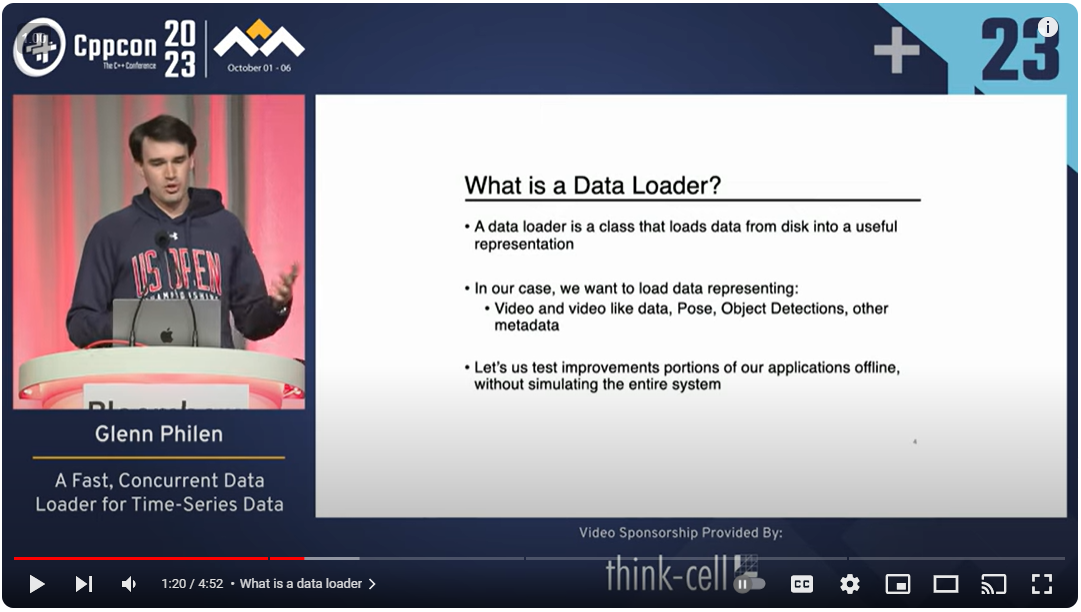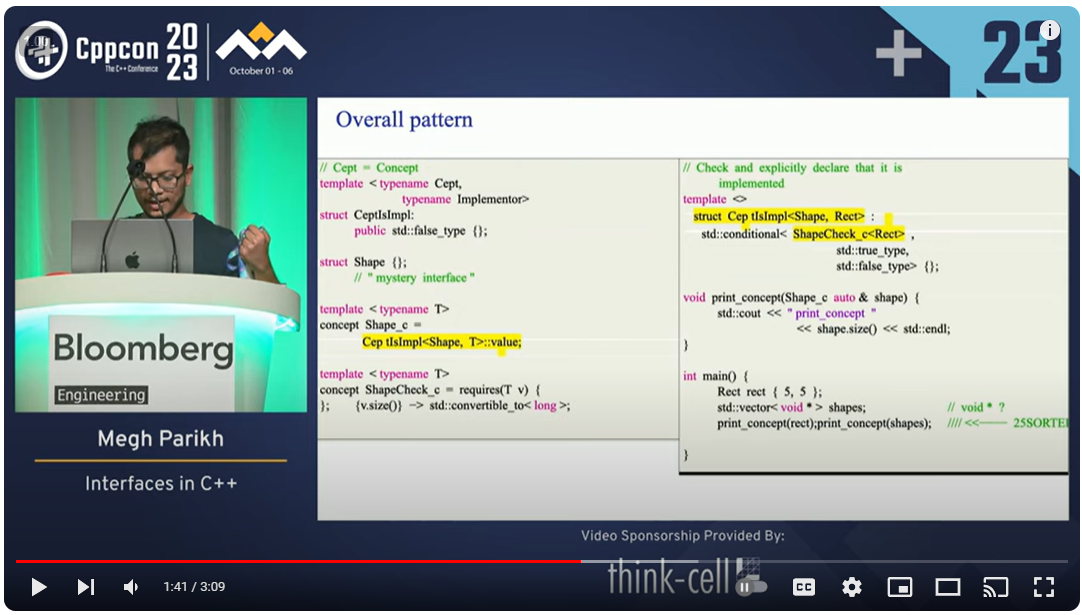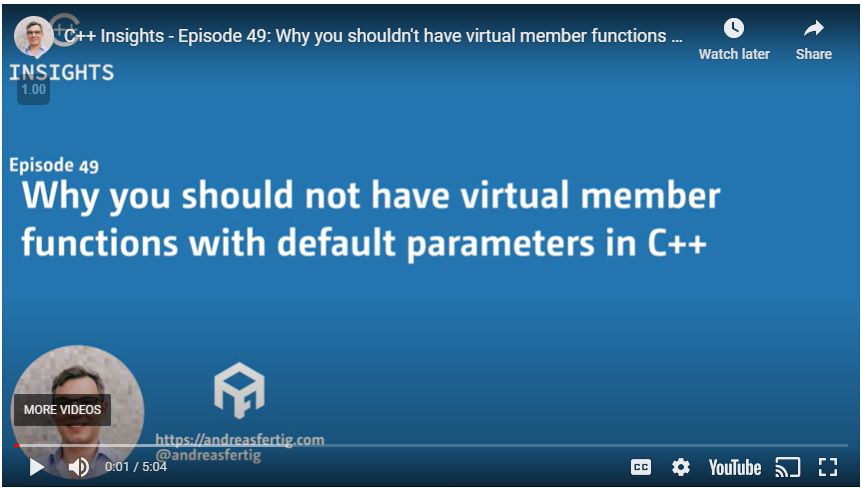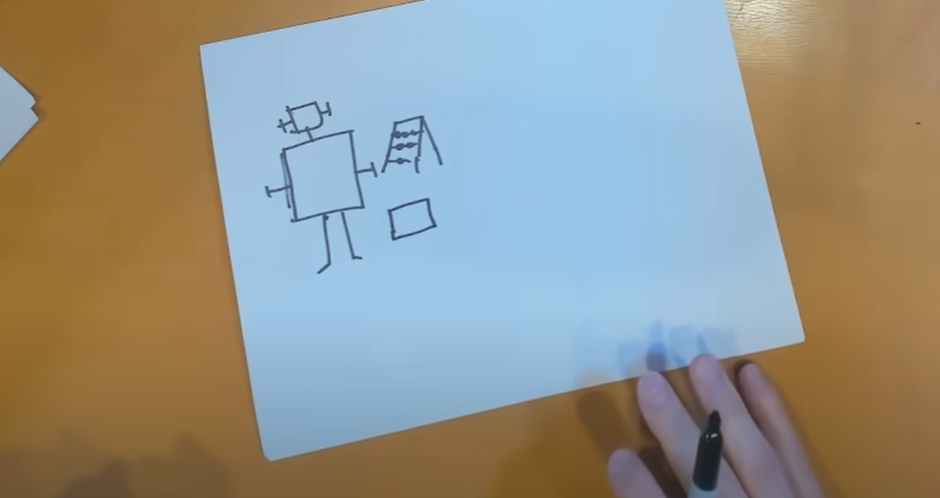CppCon 2023 A Fast, Concurrent Data Loader for Time-Series Data -- Glenn Philen
 Registration is now open for CppCon 2024! The conference starts on September 15 and will be held in person in Aurora, CO. To whet your appetite for this year’s conference, we’re posting videos of some of the top-rated talks from last year's conference. Here’s another CppCon talk video we hope you will enjoy – and why not register today for CppCon 2024!
Registration is now open for CppCon 2024! The conference starts on September 15 and will be held in person in Aurora, CO. To whet your appetite for this year’s conference, we’re posting videos of some of the top-rated talks from last year's conference. Here’s another CppCon talk video we hope you will enjoy – and why not register today for CppCon 2024!
Lightning Talk: A Fast, Concurrent Data Loader for Time-Series Data
by Glenn Philen
Summary of the talk:
In this talk, I briefly share the design of a high performance data loader used to iterating over time series data stored on disk across many individual files. The data loader aggregates data streams from different sources and of different kinds of data, orders it by timestamp, and feeds it to an offline test harness concurrently and without locking.

 Registration is now open for CppCon 2024! The conference starts on September 15 and will be held
Registration is now open for CppCon 2024! The conference starts on September 15 and will be held  In this episode, you learn how default parameters work and why you shouldn't put them on virtual member functions.
In this episode, you learn how default parameters work and why you shouldn't put them on virtual member functions. Explaining machine code from the ground up!
Explaining machine code from the ground up!